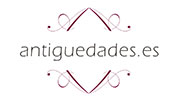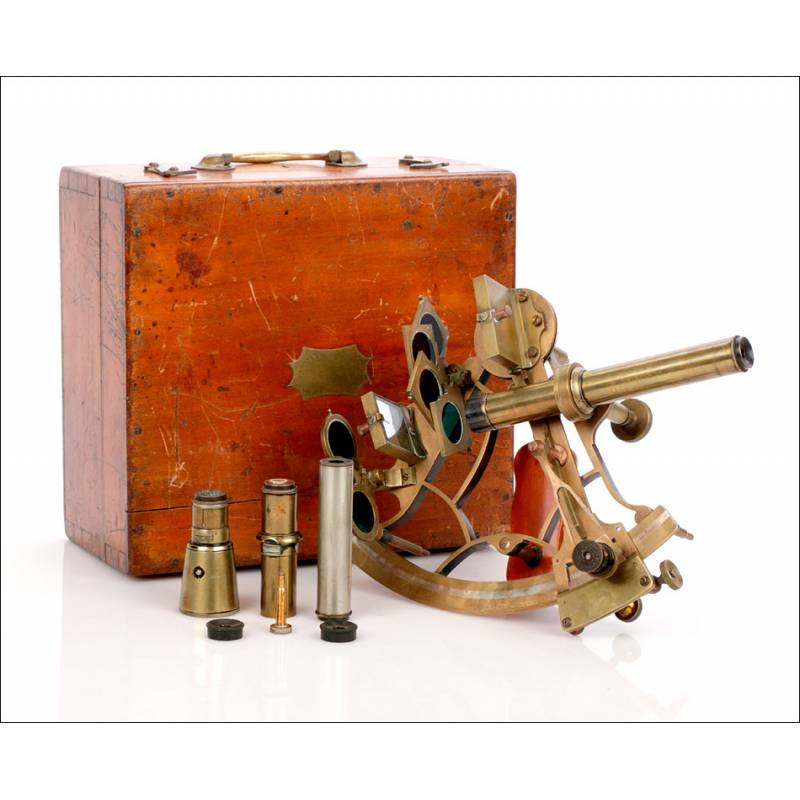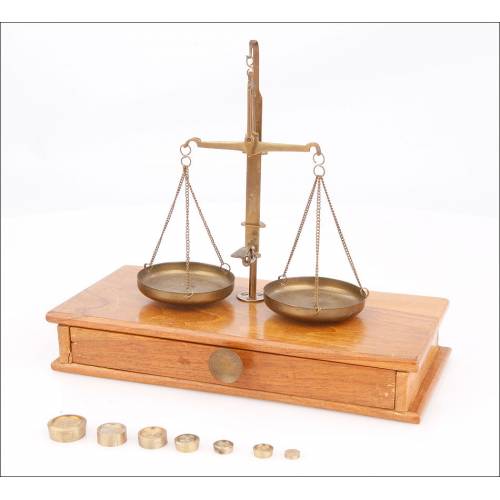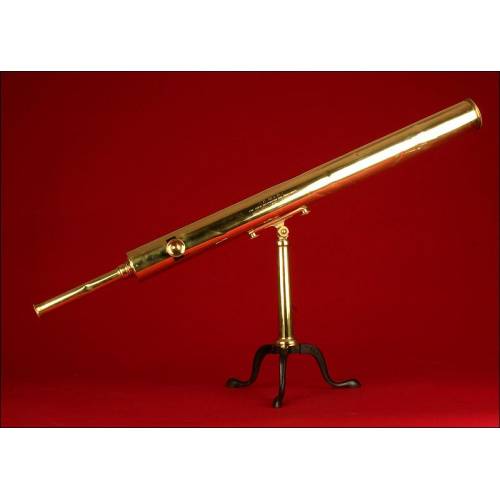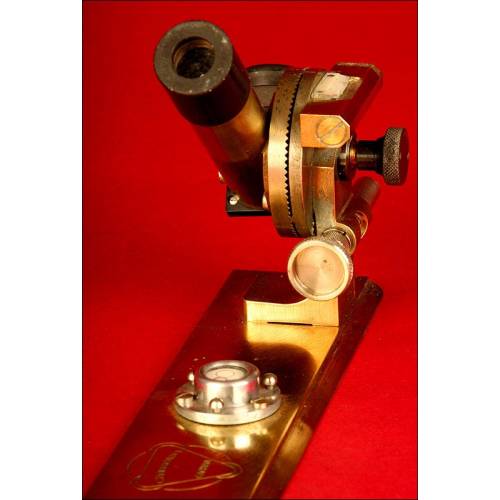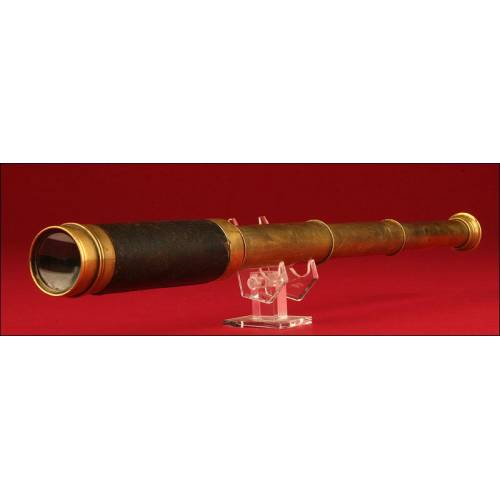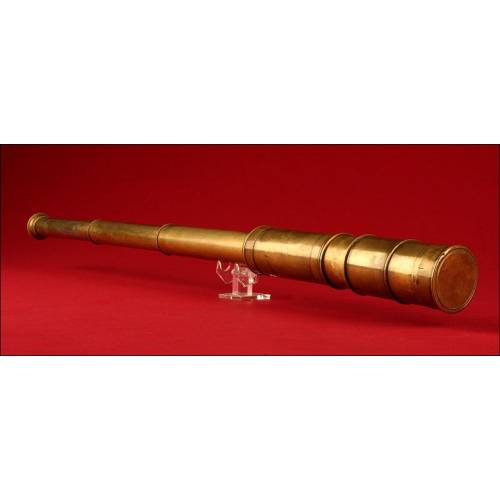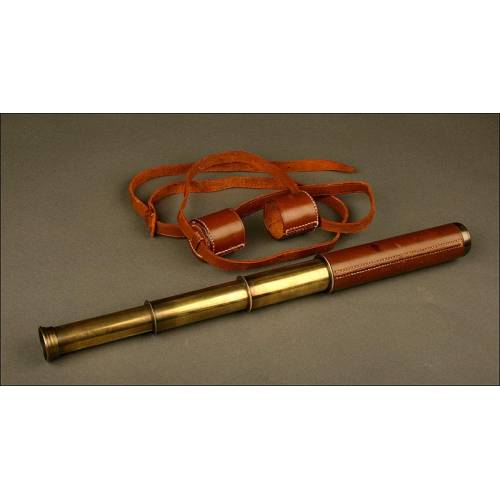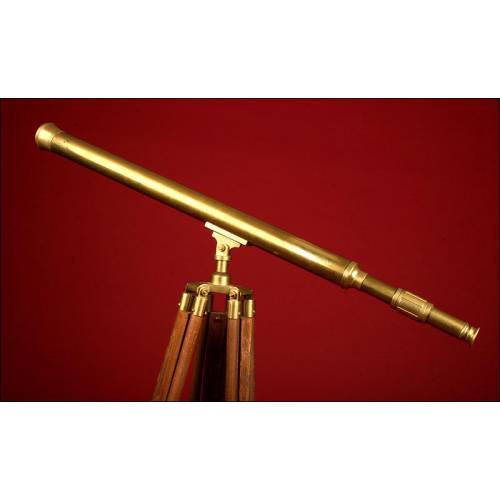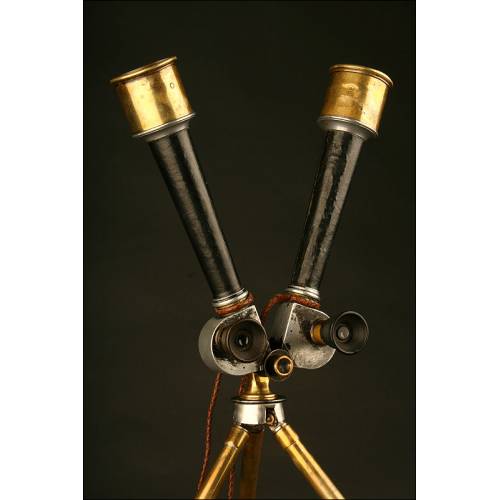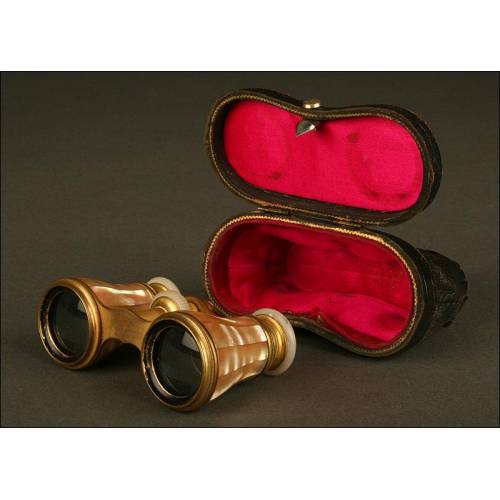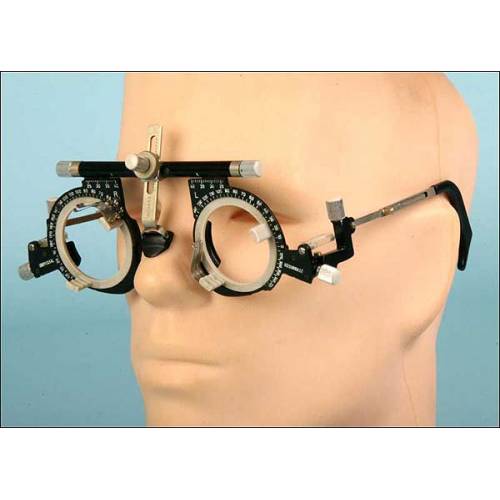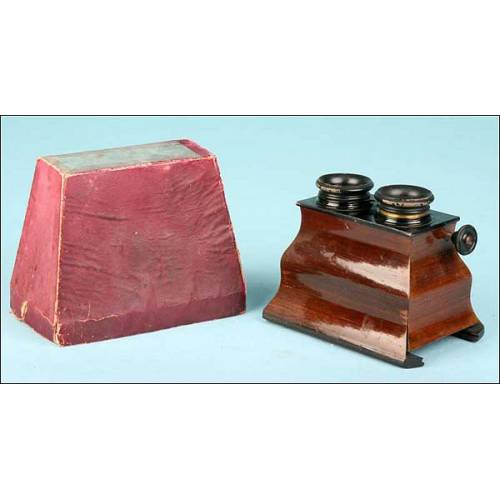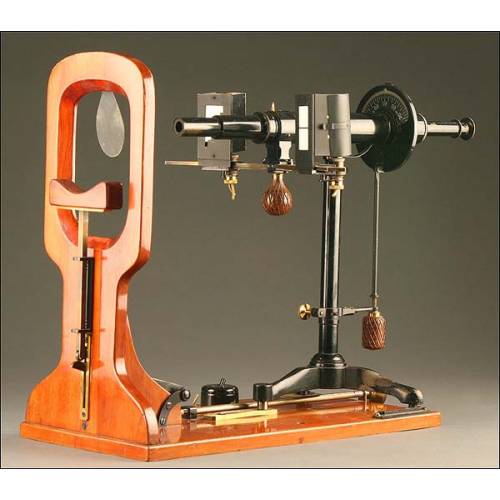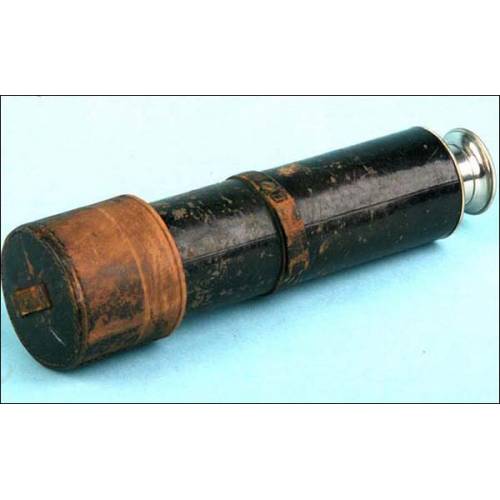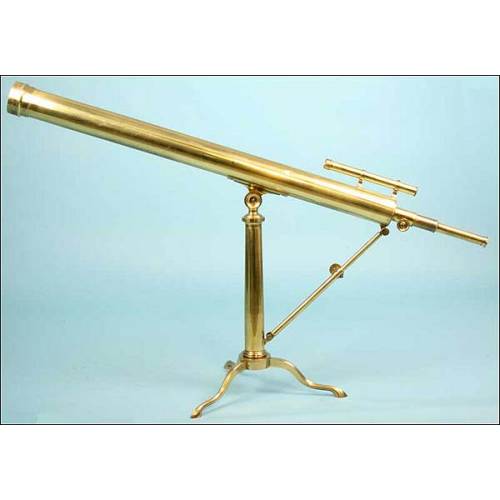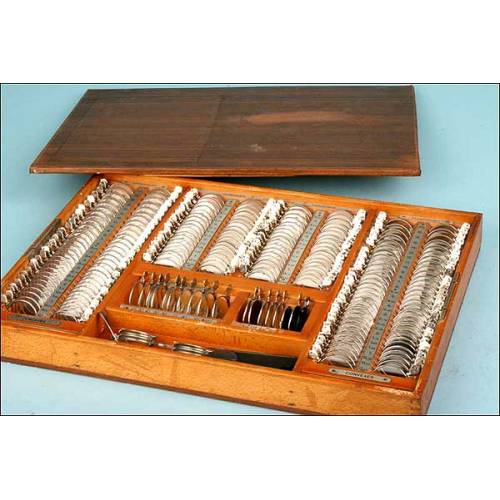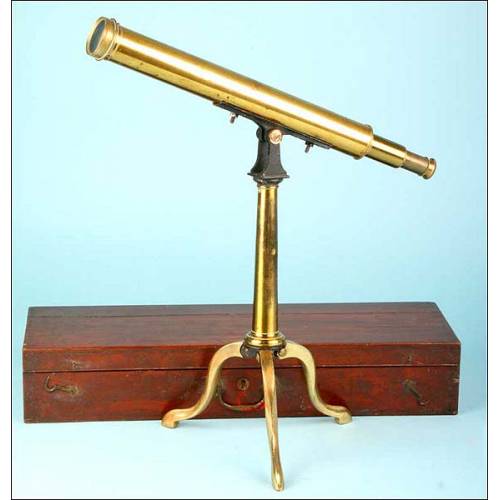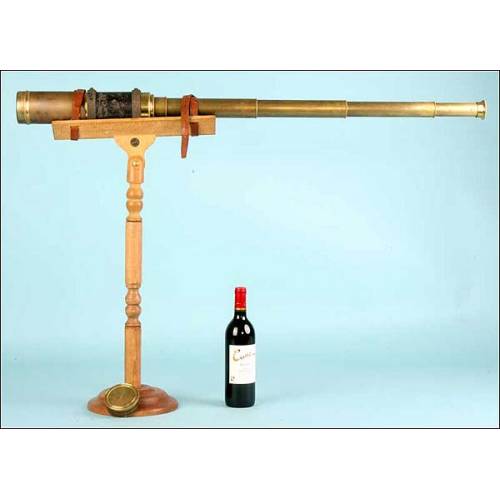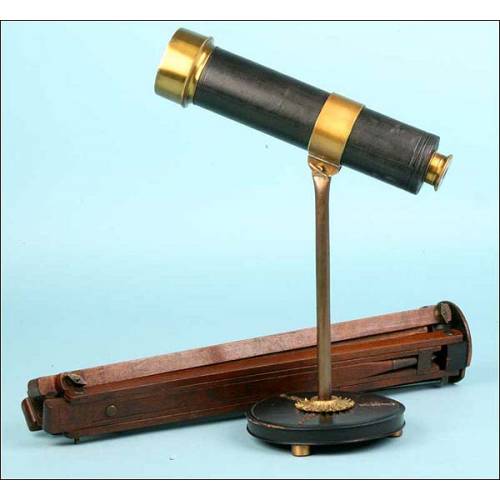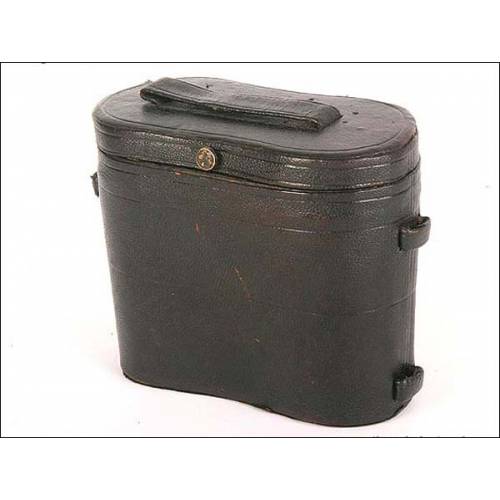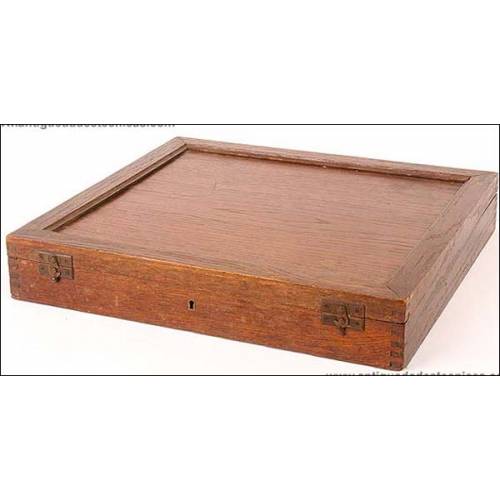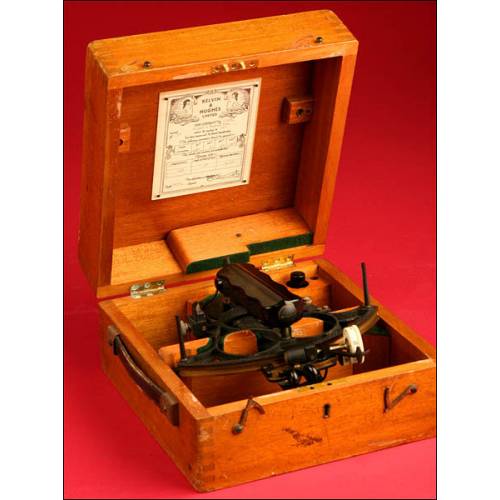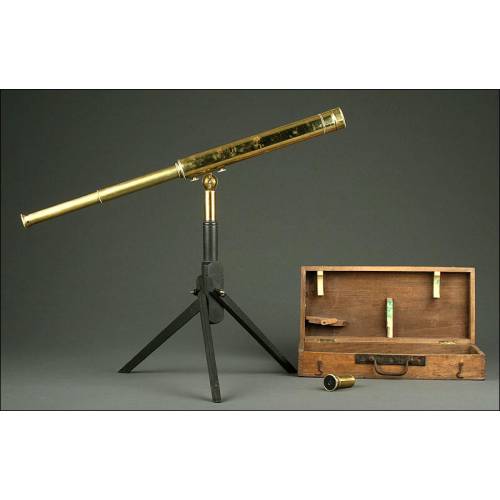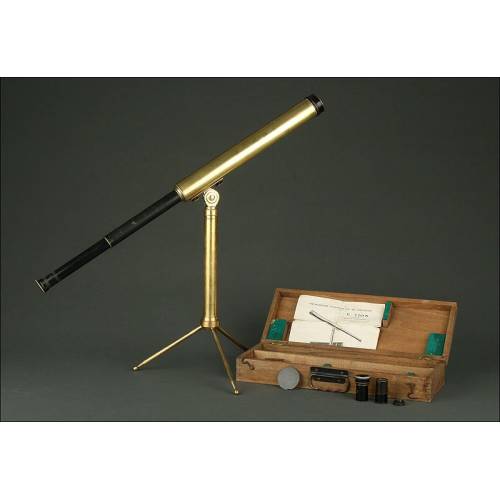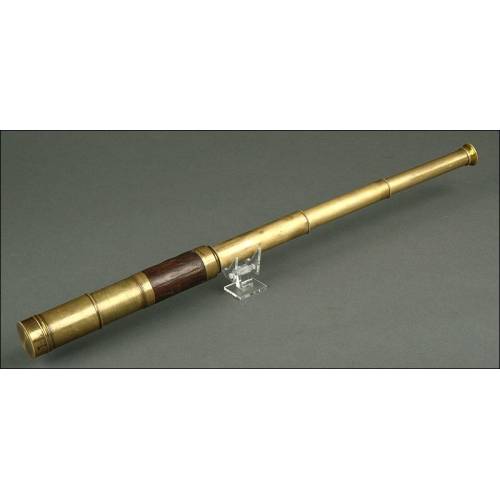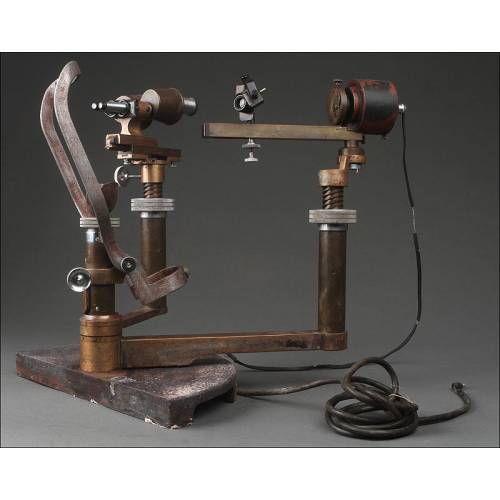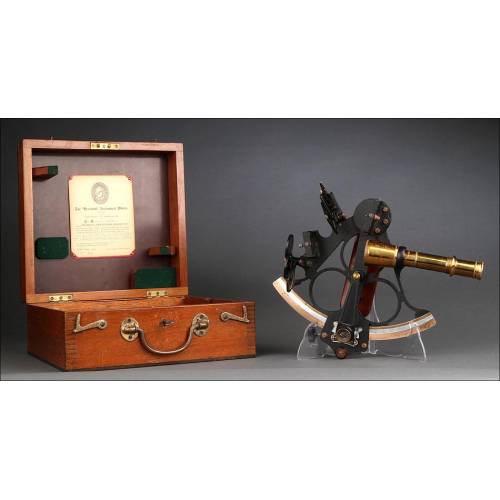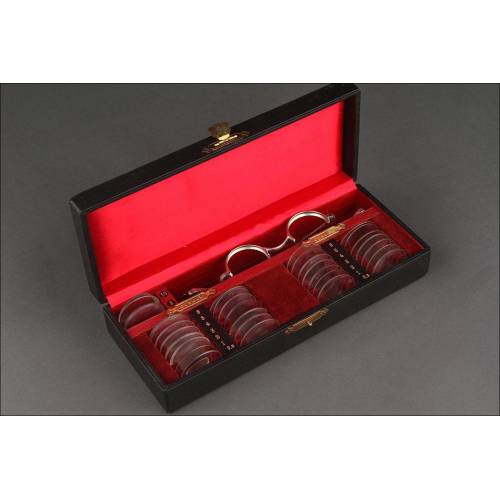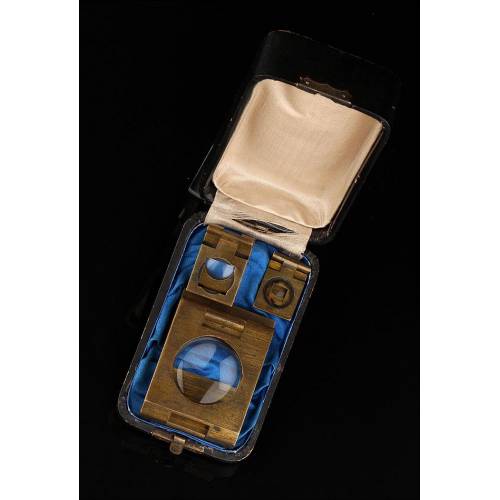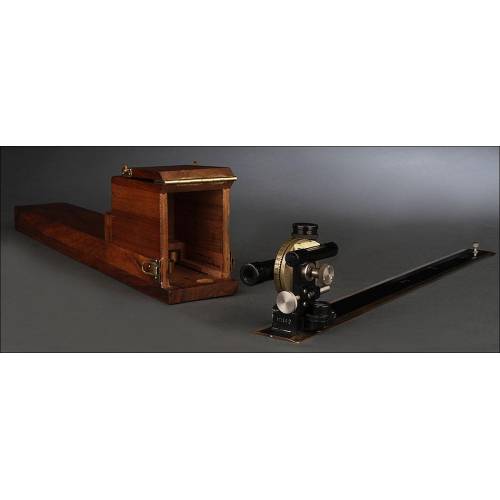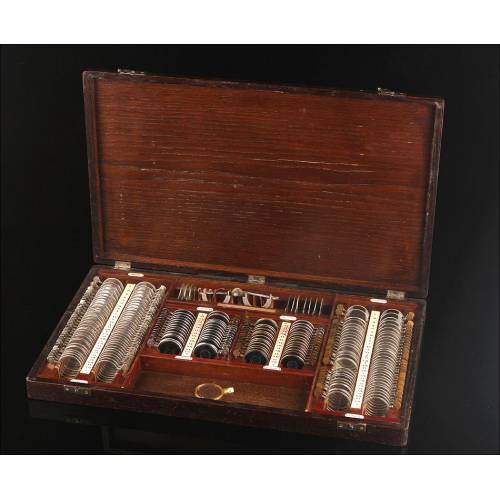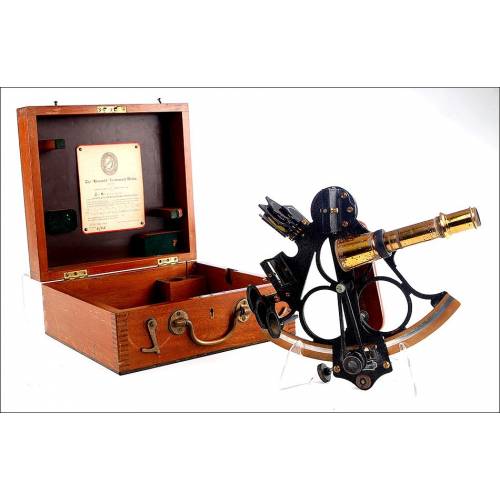C-486
Antique Heath & Co. England. 1919
Wonderful English marine sextant made in the early 20th century. Complete and with all its original parts. In working order.
Sold!
Amazing Heath & Co. marine sextant original from the early 20th century (made in 1919), coming from England in its original solid-mahogany wooden case. This is a high quality item which preserves all its component parts and pieces and remains in perfect condition. The sextant is made of brass and comes with different lenses and eyepieces. All the mobile parts move easily and fluidly, turning the sextant into a decorative and functional item. It also preserves it original tuning key. At the bottom of the graduated arch we can see the inscription HEAT & CO. LTD NEW ELTHAM LONDON and the number Q 555, both engraved in the brass surface. The solid-mahogany wood where the sextant can be stored is also in excellent condition. Though the wood is slightly worn outside, it can be easily restored by a professional. Nevertheless, the signs of the trace of time and the use it shows provide interest and charm too. The case preserves the brass handles, the fasteners and the top plate embedded at the top of the case, designed to engrave the owners initials. Inside we can find a certificate of examination issued by The National Physical Laboratory and dated in 1919. There is also a sticker with the name and address where the sextant was sold. As beautiful as interesting, this antique Heath & Co. marine sextant shows the high quality that characterized the marine instruments made by the prestigious English firm.Heath & Co. History Heath & Co., the scientific instrument manufacturing company, was founded in London by Thomas Heath in 1720. The workshop was located on the Strand in London their instruments were renowned for their high quality, a feature that was maintained for more than two centuries. Many of their workers would start their own instrument-manufacturing business later, such as Adams, Troughton or Watkins. In 1845 Thomas Heath II succeeded his father and changed the firms name for Heath & Co.; the firm kept on for decades and was active until the mid XXth century. Their three-ring-frame Hezzanith sextant was probably the most popular ever produced; Heath made thousands of units.
